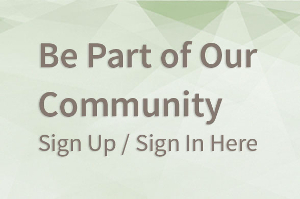BK Blog Post
Publishing is the Best Conversation Starter
 Posted by
Anna Leinberger,
Editorial Manager, Acqusitions,
Berrett-Koehler Publishers Inc.
Posted by
Anna Leinberger,
Editorial Manager, Acqusitions,
Berrett-Koehler Publishers Inc.
Anna is a writer and editor for Berrett-Koehler in Oakland, CA. More on killer book proposals and writing can be found on her BK Blog.
Working in publishing is a great conversation starter. Telling people my job is in publishing never fails to elicit an interested “Oh! How cool!” followed by a lot of questions. As it happens, I am new enough to this world that still I love these conversations. This past weekend being a holiday weekend, I had many opportunities at various celebrations to meet people and chat about my job, and one piece of advice just came up over and over: a perfect subject for a blog post!
Insider Secrets
Of course, by and far the question of greatest interest is how to successfully get your work published. (See last week’s blog about how everyone wants to write a book, someday.) Clearly, I love talking about the process by which you can get your work published- I have been writing a blog about it for well over a year now, after all. There are a million different roads to publication, so talking to each individual person is going to be a different conversation- fiction or non fiction? What work do you do? How do you engage with the world- how do people know your name? (Do they?) But what is common to every person is that trying to get published involves hearing rejection after rejection- that it is a hard road and unforgiving.
So, what does that mean for your quest?
Fail. Fail a lot.
Basically, you are going to hear No 99 times for every 1 yes. (I might have lowballed the number on the no.) When people talk about rejection and the arts- theater, writing, visual arts, anything really- the focus is on how much rejection you will face and what an incredible burden that is to bear. I don’t think this is a very productive way to think about it though. Don’t bemoan how awful it is to have your work rejected, don’t think of every rejection as a cross that you must bear. Anything in life worth doing will involve more rejection and more NO than yes. Honestly? Get over it, and do more, better.
Getting your work published requires two basic things: 1. your work needs to be high quality and compelling. This is obviously priority one. Most traditional publishing houses will not publish mediocre work, so what you have has got to be good. 2. You need to be willing to submit your work 99 times before you can expect to hear a yes- namely you need persistence. Getting published requires that you start submitting your work, being rejected, taking any and all feedback that you are able to get, re-working your writing, and submitting again- lather, rinse, repeat, if you will.
Compare it to other endeavors in life
Now, the baffling thing to me is that this yes-to-no ratio is not actually that far off of things that we all do and consider completely normal. If I were to open up the folder on my computer named “resumes” it would probably have 200 different versions of my resume and my cover letters for all the positions I applied to in my last job hunt. That is another situation that we consider normal- that you must apply to many jobs, never hear back from them, and keep applying until you land that interview, land a few more interviews, and then finally get the job. Writing is like applying for a job, it is like trying to land your first freelancing client, it is like learning an instrument. When you are learning to throw a baseball, you do not get upset if your first toss goes wrong. You do it again and again, and you begin to get it right- maybe once every ten.
The most important takeaway
Trying to get your work published is a process- engage with that process. Submit your work, when you hear no- take whatever feedback you have gotten and improve what you have. If you have received no feedback, go seek it out somewhere else. Don’t just submit your work and then waste time waiting on one publisher or one agent, submit, and move on to the next one. Never stop working, never stop improving, and don’t let the pile of NO letters mean anything to you except that as long as you keep improving, you are getting closer to yes.





